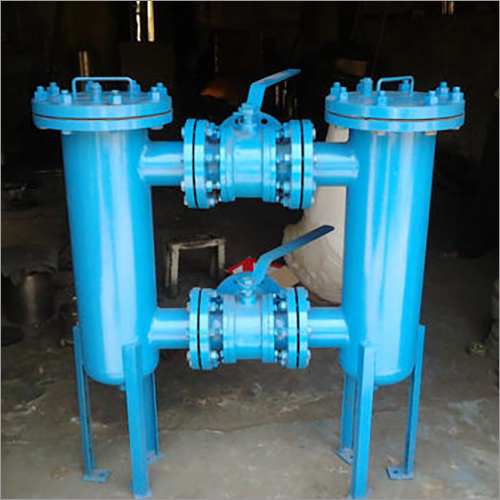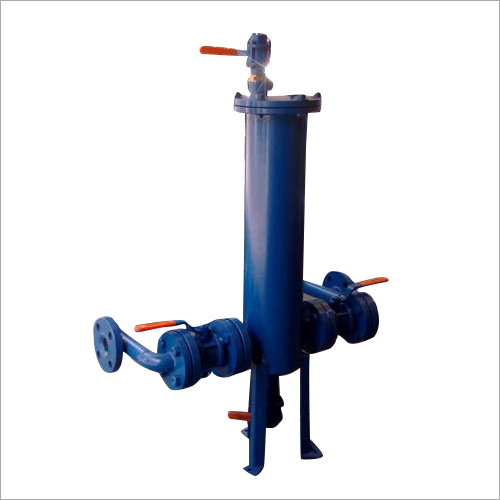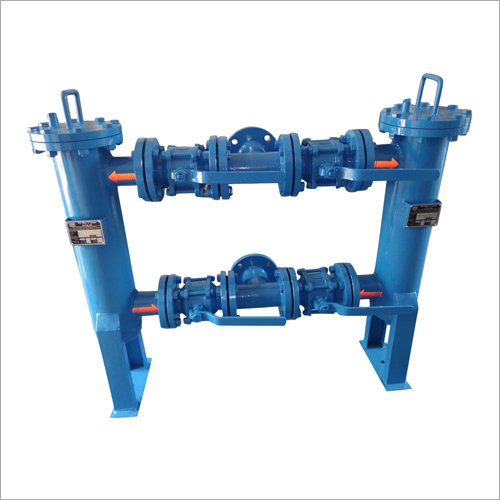
Industrial Hydraulic Liquid Filters
Price 1000 INR/ Piece
MOQ : 1 , , Piece
Industrial Hydraulic Liquid Filters Specification
- Diameter
- 50 mm to 300 mm
- Capacity
- High Flow Rate
- Efficiency (%)
- 99%
- Resistance
- Corrosion and Pressure Resistant
- Usage
- Liquid Filtration
- Type
- Cartridge / Panel / Bag Filter
- Material
- Stainless Steel / Glass Fiber / Cellulose
- Size
- Customized
- Thickness
- 0.5 mm to 2.5 mm
- Thermal Shrinkage
- Minimal
- Working Temperature
- -30C to 120C
- Application
- Industrial Hydraulic Systems, Lubrication Units, Liquid Filtration
Industrial Hydraulic Liquid Filters Trade Information
- Minimum Order Quantity
- 1 , , Piece
- Supply Ability
- 200 Pieces Per Month
- Delivery Time
- 1 Week
About Industrial Hydraulic Liquid Filters
Product details
| Material | MS. SS |
| Usage/Application | Oil Filter |
| Operating Pressure | 20 to 50 Bar |
| Temperature | 120 to 350 Deg. C |
| Filtration Rating | 1 Micron to 6000 Micron & More |
| Flow | 1000 to 3000 M3/Hr. |
| Brand | Guru |
| Diameter | 6 - 20 inch |
Precision Filtration for Industrial Performance
Our hydraulic liquid filters provide filtration accuracy down to 1 micron, delivering superior contaminant removal and safeguarding sensitive components in industrial systems. Designed for reliability, these filters support efficient operation under high pressure and variable conditions, offering extended service life and robust protection for hydraulic and lubrication applications.
Customizable Design and Flexible Integration
The filters are available in multiple sizes, diameters, and types including cartridge, panel, and bag filters to suit diverse application requirements. With options for threaded or flanged end connections, the installation process is straightforward and adaptable. The replaceable element feature allows for easy maintenance, reducing overall downtime and operational costs.
Built for Durability and High Efficiency
Constructed using premium materials such as stainless steel, glass fiber, and cellulose, these filters are engineered to resist corrosion and withstand pressure. Their industrial-grade build ensures minimal thermal shrinkage and supports high-flow operations with an impressive filtration efficiency of 99%. Extended service life means fewer replacements and greater productivity.
FAQs of Industrial Hydraulic Liquid Filters:
Q: How do I select the right filtration precision for my hydraulic liquid filter?
A: To choose the correct filtration precision, assess the size of particles to be filtered and system requirements. These filters offer precision from 1 to 50 microns, suitable for removing fine contaminants to protect hydraulic components and enhance overall system reliability.Q: What is the recommended process for replacing the filter element?
A: Replace the filter element when differential pressure increases or at scheduled maintenance intervals. Shut down the filtration system, relieve pressure, and carefully remove the housing using the threaded or flanged connection. Replace the element, reassemble, and restart the system following manufacturer guidelines.Q: When should these filters be installed in industrial hydraulic systems?
A: Install these liquid filters during initial setup or upgrades of hydraulic systems, lubrication units, or any process requiring high-efficiency liquid filtration. They help maintain fluid cleanliness from the outset, reducing equipment wear and extending service intervals.Q: Where can I use these hydraulic liquid filters?
A: These filters are ideal for a range of industrial applications in India, including hydraulic systems, lubrication units, and customized liquid filtration processes. Their high flow rate capacity and corrosion resistance suit demanding environments across manufacturing, fabrication, and service sectors.Q: What are the benefits of using robust industrial-grade hydraulic filters?
A: Robust filters ensure durability under high pressure and harsh conditions, reduce maintenance through easy replaceability, maintain high fluid cleanliness at 99% efficiency, and withstand thermal and chemical stress, leading to extended service life and lower operating costs.Q: How does the construction material impact filter performance and longevity?
A: Utilizing stainless steel, glass fiber, or cellulose enhances resistance to corrosion and mechanical stress while maintaining filter integrity at temperatures from -30C to 120C. This ensures long-lasting operation and reliability in varied industrial environments.Q: Can the filter size and type be customized for specific liquid filtration requirements?
A: Yes, the filters are available in customized sizes (diameter 50 mm to 300 mm, thickness 0.5 mm to 2.5 mm) and types (cartridge, panel, bag) to meet unique filtration needs, whether for hydraulic, lubrication, or specialized processes.
Tell us about your requirement

Price:
Quantity
Select Unit
- 50
- 100
- 200
- 250
- 500
- 1000+
Additional detail
Mobile number
Email
More Products in Liquid Filters Category
Industrial Liquid Filter
Price Range 15000.00 - 50000.00 INR / Piece
Minimum Order Quantity : 1 Piece
Diameter : 150 mm
Working Temperature : 10C to 120C
Thermal Shrinkage : <2% at 120C
Duplex Filter
Price 20000.00 INR / Piece
Minimum Order Quantity : 1 Piece
Diameter : 80 mm
Working Temperature : 10C to +120C
Thermal Shrinkage : 1.5%

 Send Inquiry
Send Inquiry


 Call Me Free
Call Me Free
